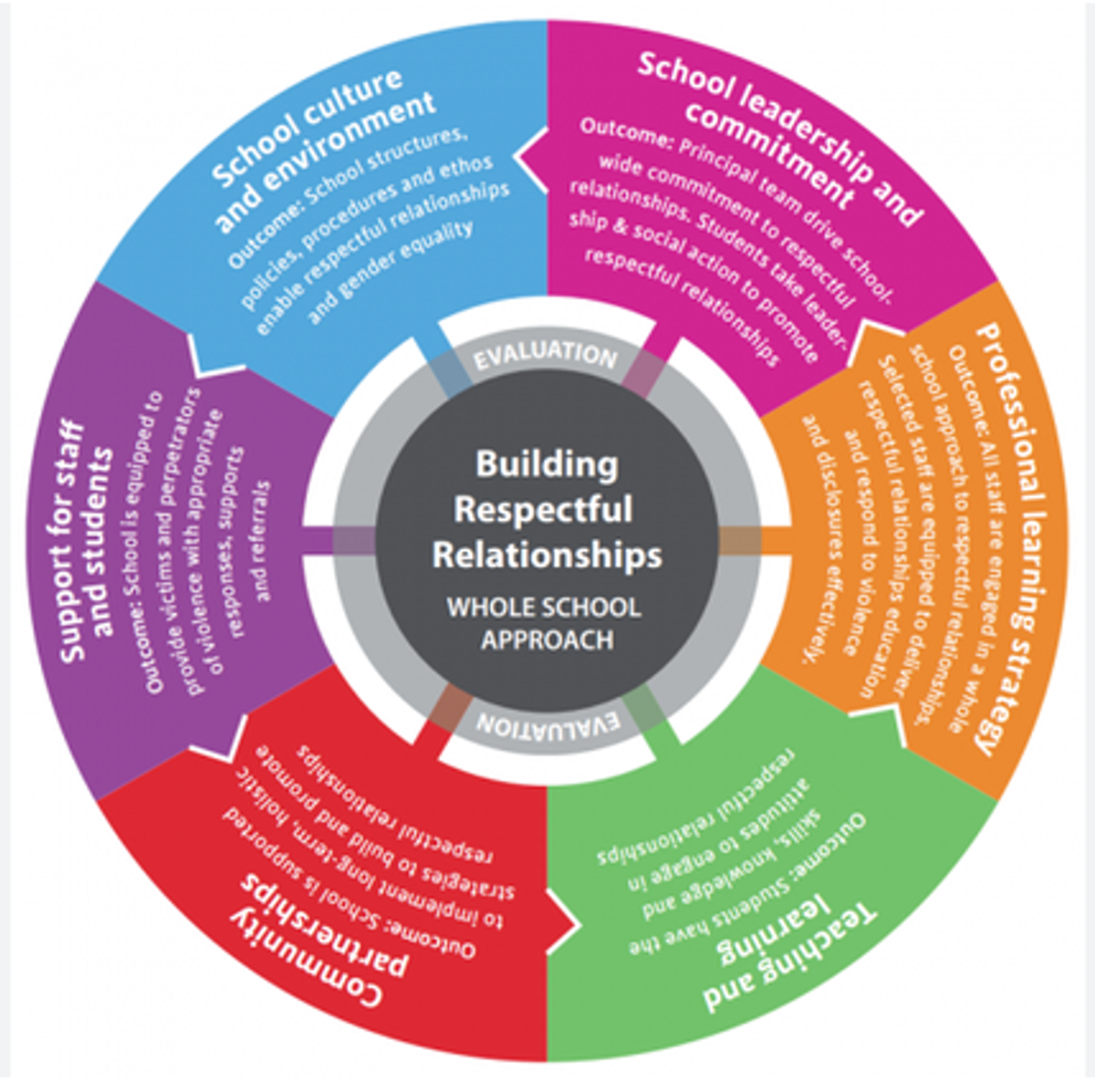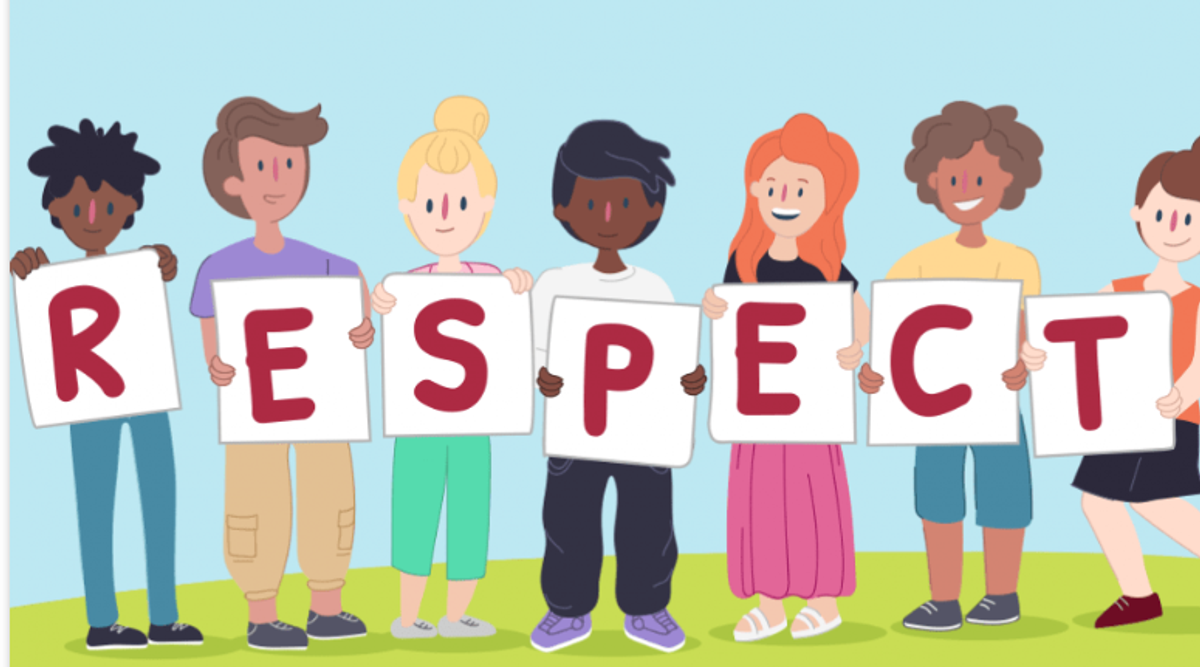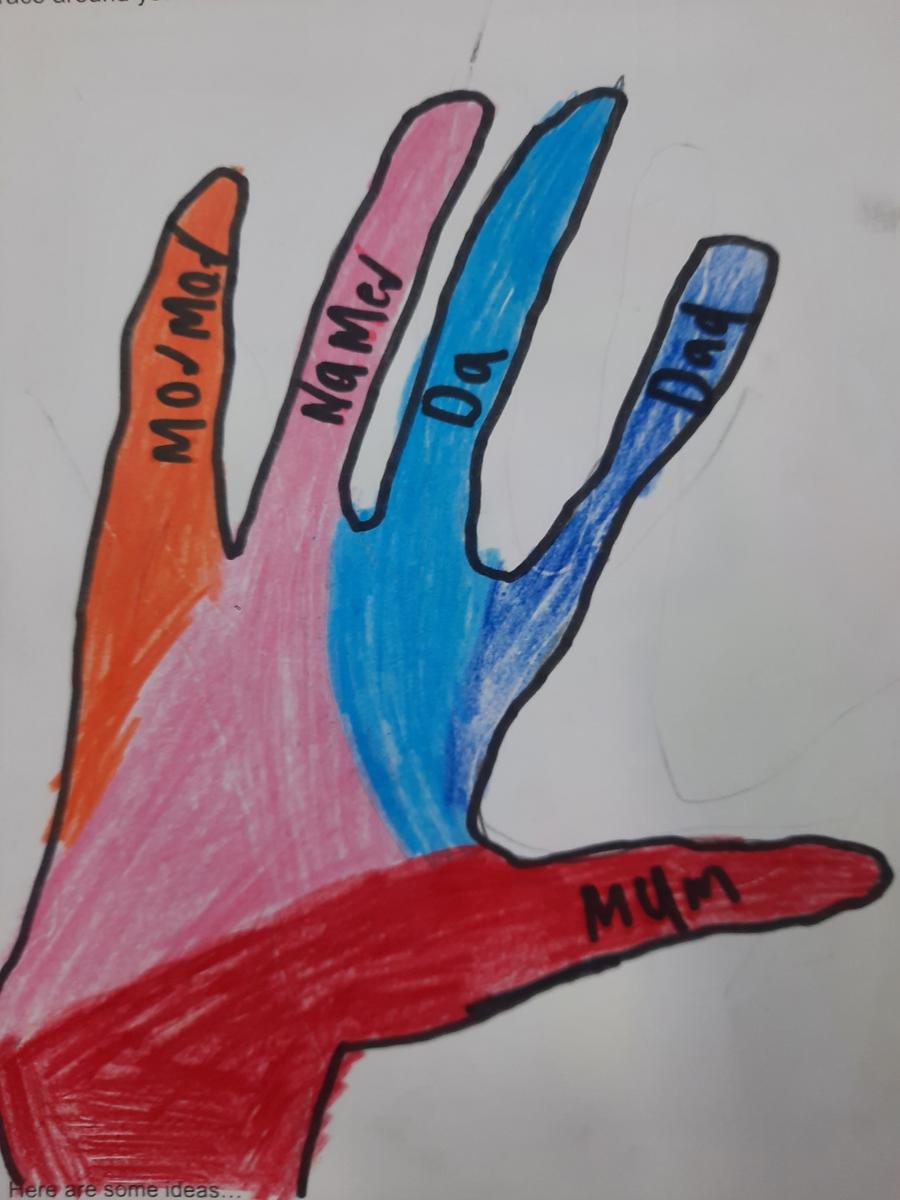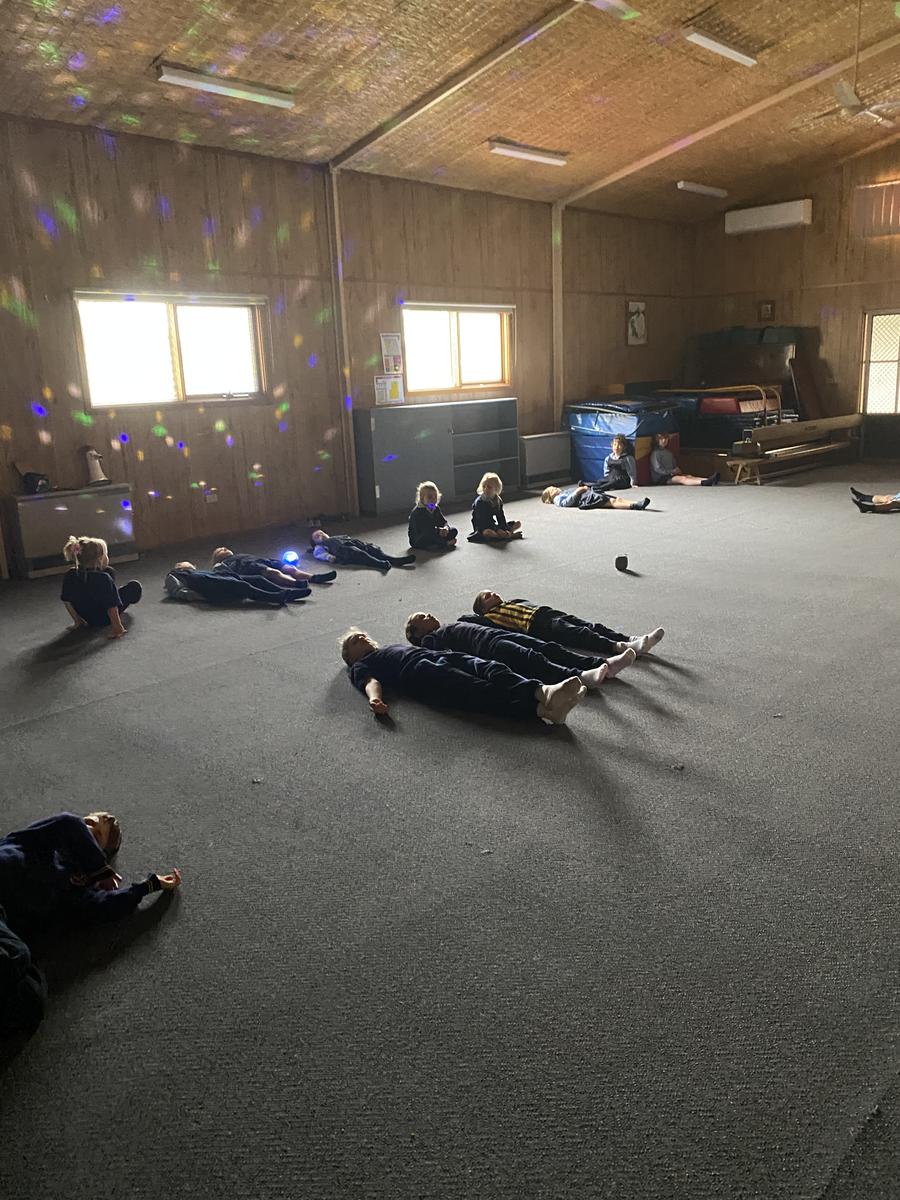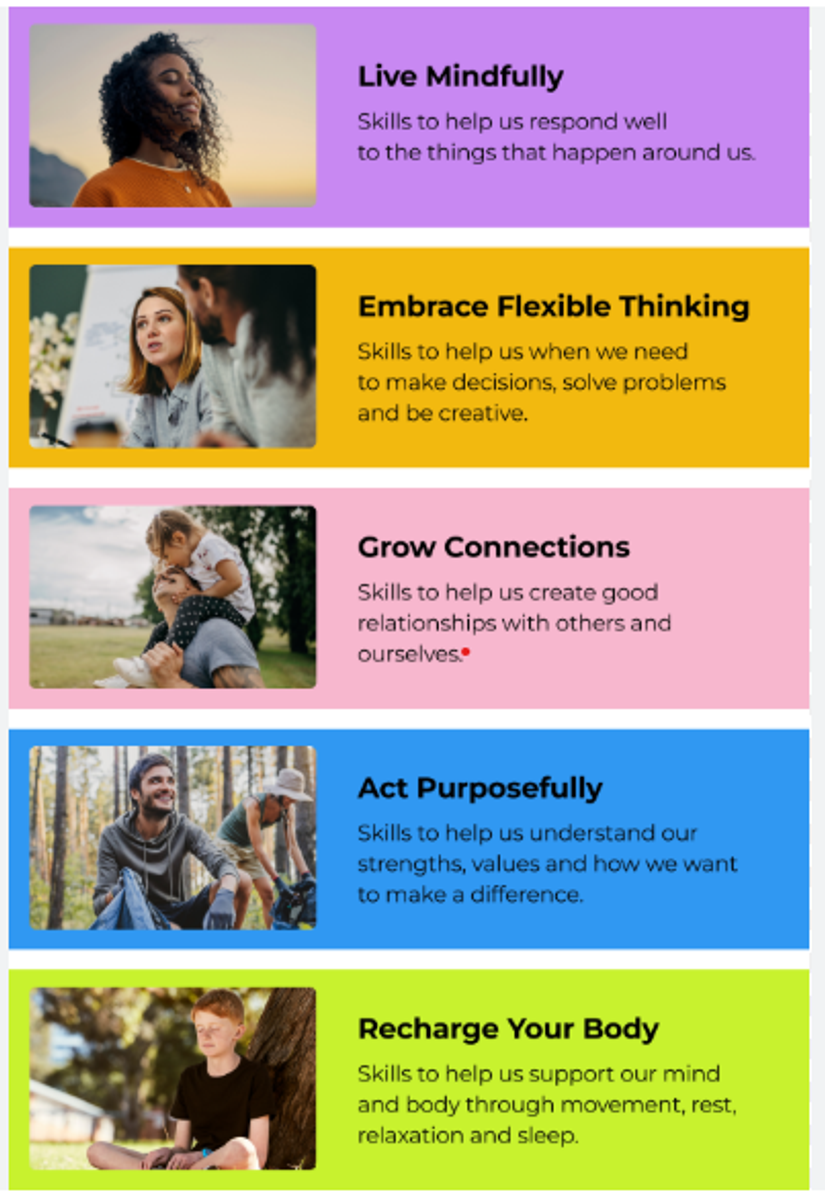Student Wellbeing

Resilience, Rights and Respectful Relationships Whole School Approach
St Joseph's School is committed to implementing a whole-school approach to Respectful Relationships Education as a Child Safety focus. Respectful Relationships Education is intrinsically embedded throughout all aspects of our school community life, as we recognise that our school is more than just a space for young people to learn. Our school is an environment where all students, staff and families deserve to feel respected, safe and valued. Schools, like ours, are also important hubs in the community and we have the opportunity to lead, influence and contribute to healthy community culture and ultimately progressively and collectively work toward societal change in how people treat each other.
Through weekly explicit SEL lessons (Social and Emotional Learning) and the use of the updated Respectful Relationships Curriculum, across a two-year scope and sequence plan, students explore 8 topics which include:
Topic 1: Emotional literacy
Topic 2 : Personal and cultural strengths
Topic 3 : Positive coping
Topic 4 : Problem-solving (THIS TERM'S FOCUS across all year levels)
Topic 5: Stress management
Topic 6 : Help-seeking
Topic 7: Gender norms and Stereotypes
Topic 8: Positive gender relationships
During Term 2, 2025, all classes from Prep to Yr 6 have explicitly been learning about the topic of PROBLEM-SOLVING during SEL. Students learn a range of problem-solving techniques to apply when confronting personal, social and ethical dilemmas. They engage in scenario-based learning tasks to practise their problem-solving skills in relevant situations appropriate to their age level. Here is an activity from the Yr 5/6 class on identifying their Safety Support Network.
Evidence shows that it is important to help students learn a range of problem-solving skills through applied learning tasks to help them cope with future challenges. Problem-solving is identified by the World Health Organization as a key skill for health. To be able to solve problems, students need to be able to think critically and evaluate the consequences of various actions. Use of problem-solving tools to explore possible responses to challenges provides opportunity for students to develop critical-thinking skills, whilst also learning with and from a range of other students within small task groups. For example, use of scenarios or role plays has been shown to be an effective basis for discussion with students, generating increased connectedness and understanding of each other.
Whether during Lunchtime Clubs or Classroom Meditation - Mindfulness is a hit with our kids!
Wednesday lunchtimes in the hall continues to be an enjoyable time for many students to unwind a relax with a calming, mindful exercise in meditation. Students understand that mindfulness can be hard and takes training, but have been reporting feeling "calm", "peaceful", "relaxed" and even "happier".
Students also have opportunities in class through the SMILING MIND PRIMARY SCHOOL CURRICULUM once or twice each week that have a number of benefits.
This term, the classes have examined the Smiling Mind lessons that have focused on:
- Recognising and Managing Emotions
- Making Decisions
- Positive Communication
Warm Regards,
Jenny Todd
(Student Wellbeing Leader)

